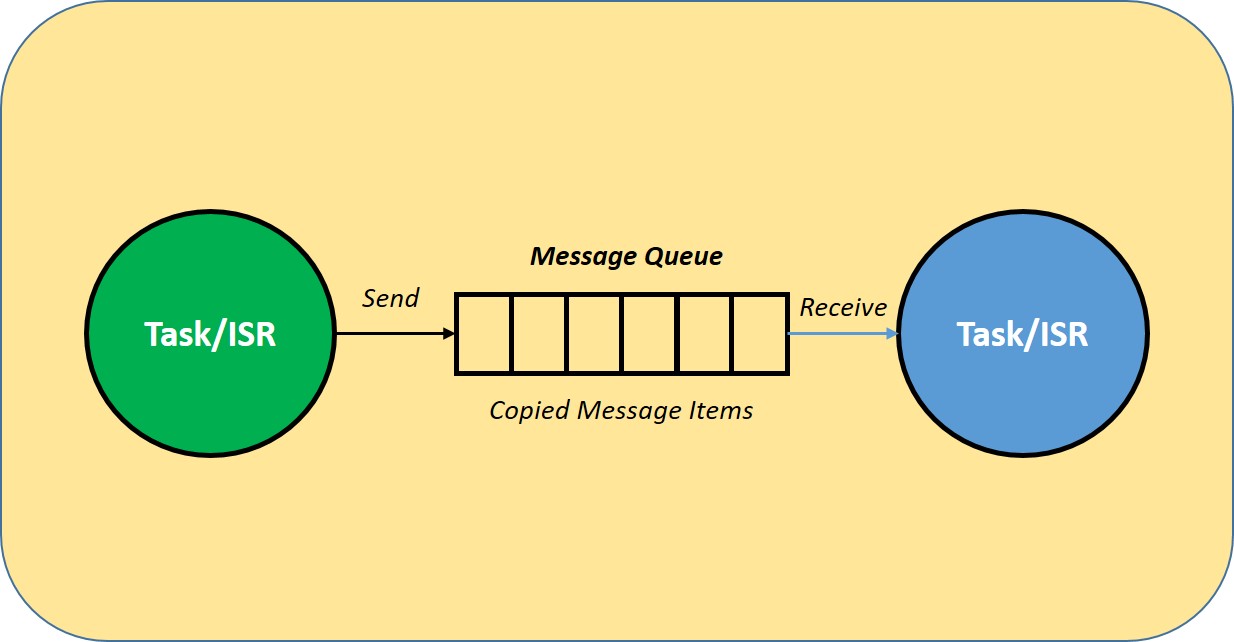Message Queue
- group OS_87x3e_Message
-
Exchange messages between tasks in a FIFO-like operation.
The Message Queue function group allows to control, send, receive, or wait for message. Message transmission is a basic communication model between tasks that one task sends data explicitly, while another task receives it. The operation is more like some kind of I/O rather than a direct access to information to be shared. The data to be passed can be any type.

Variables
-
bool (*os_msg_queue_create_intern)(void **pp_handle, const char *p_name, uint32_t msg_num, uint32_t msg_size, const char *p_func, uint32_t file_line)
-
bool (*os_msg_queue_delete_intern)(void *p_handle, const char *p_func, uint32_t file_line)
-
bool (*os_msg_queue_peek_intern)(void *p_handle, uint32_t *p_msg_num, const char *p_func, uint32_t file_line)
-
bool (*os_msg_send_intern)(void *p_handle, void *p_msg, uint32_t wait_ms, const char *p_func, uint32_t file_line)
-
bool (*os_msg_recv_intern)(void *p_handle, void *p_msg, uint32_t wait_ms, const char *p_func, uint32_t file_line)
-
bool (*os_msg_peek_intern)(void *p_handle, void *p_msg, uint32_t wait_ms, const char *p_func, uint32_t file_line)
-
bool (*os_msg_queue_create_intern)(void **pp_handle, const char *p_name, uint32_t msg_num, uint32_t msg_size, const char *p_func, uint32_t file_line)